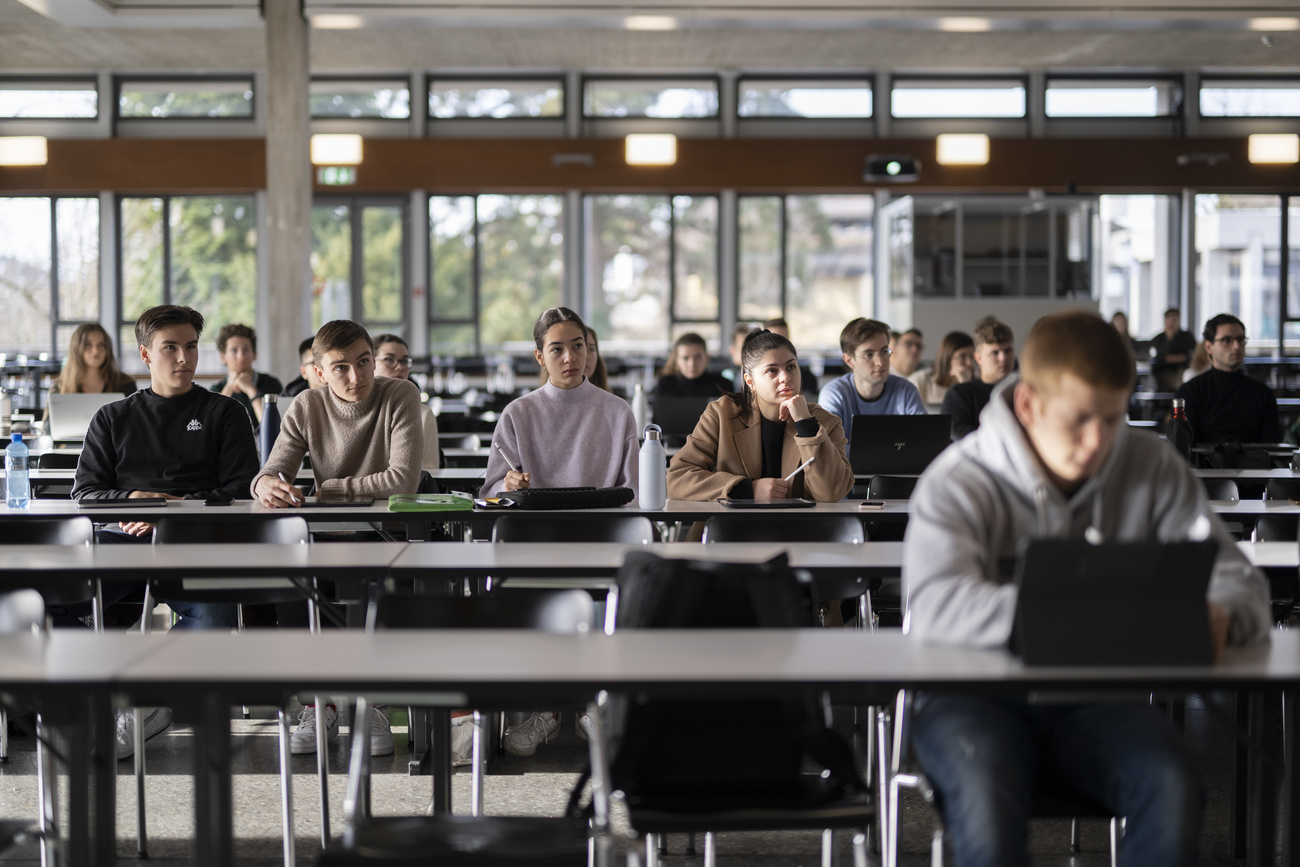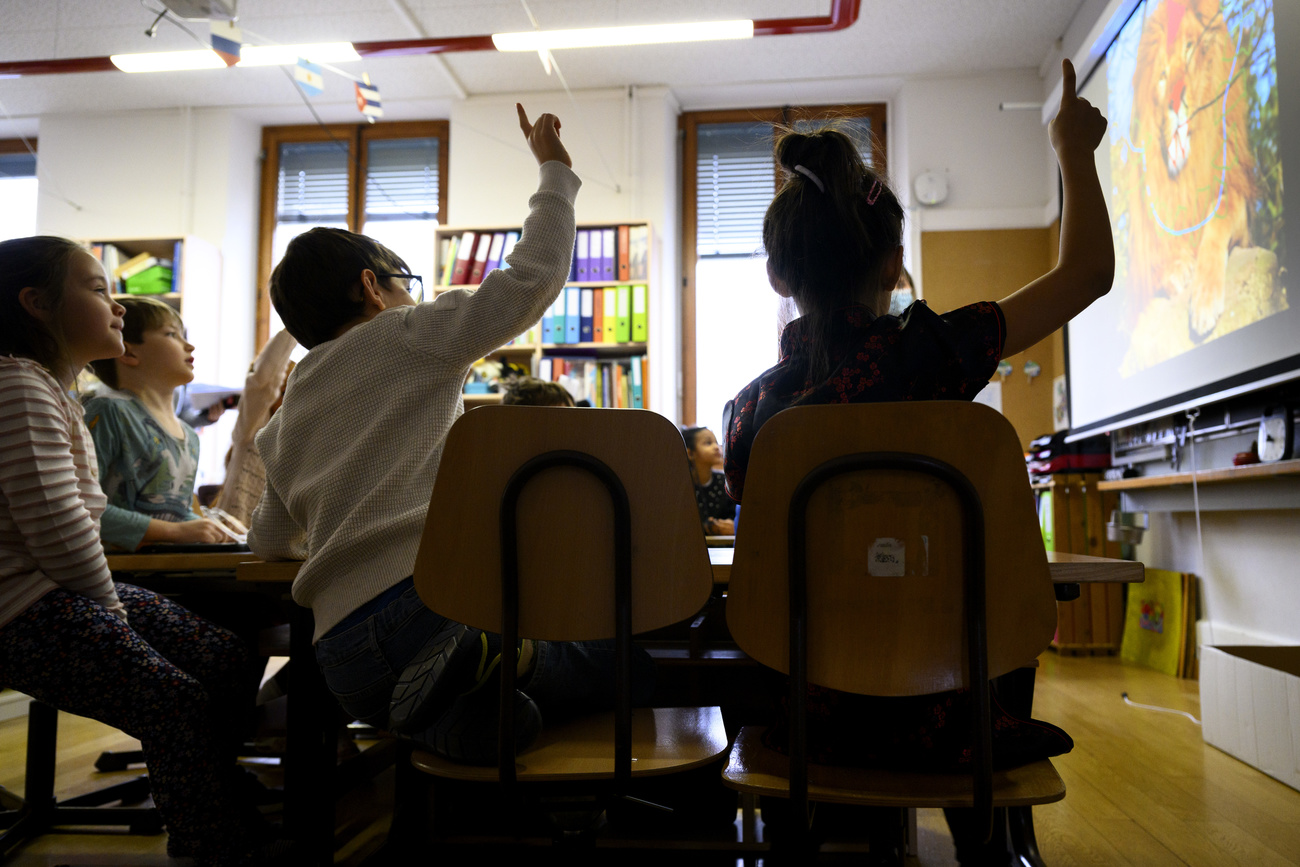Universities to review Russian research cooperation

Swiss universities should re-examine their scientific collaborations with universities in Russia and suspend them if necessary, the sector’s umbrella body has said.
“When political agreements and rules of diplomacy are unilaterally overridden, many areas in science remain connected through a common understanding of scientific freedom and academic integrity. This scientific cooperation must not serve to support the aggressive policy of the Russian government, which with this war of aggression violates fundamental principles of human rights, international law and basic European values,” said swissuniversities in a statementExternal link on Wednesday.
“In this sense, the Board of swissuniversities recommends that Swiss universities review their scientific collaborations with universities in Russia and suspend them where such a danger exists.”
University of Fribourg
The University of Fribourg has already taken action. It has been working with two Russian universities for years, but these institutions both support the Russian invasion of Ukraine.
“We are suspending our cooperation with these institutions, because otherwise we would be supporting Russia’s war,” the University of Fribourg’s rector Astrid Epiney told Swiss public television SRF.External link
Swissuniversities stressed that it was however, “in favour of supporting institutions as well as researchers and students in Russia who are suffering from the current situation and who are committed, as far as possible, to the European system of values and law”.
It said that it wanted to protect Ukrainian and Russian researchers and students at Switzerland’s ten universities and two prestigious federal institutes of technology.
Russian students and researchers
There are around 200 students and researchers at the Federal Technology Institute Zurich (ETH Zurich), spokeswoman Vanessa Bleich told SRF.External link
“Of course, all ETH members with Russian citizenship can continue their studies or research at ETH Zurich as normal,” she said in the report.
But this does not exclude consequences in some cases. The University of Fribourg’s Faculty of Theology announced on March 8External link that it had suspended “until further notice” a Russian titular professor – a high ranking official in the Russian Orthodox church who had held the position at the faculty since 2011 – because he would not condemn the Russian invasion of Ukraine.
Also based in Switzerland, in Geneva, is the European Organization for Nuclear Research (CERN) – famous for the Large Hadron Collider, the world’s biggest and highest-energy particle collider.
On March 8, it released a statementExternal link condemning “in the strongest terms” the Russia’s invasion of Ukraine. It said it would henceforth promote initiatives to support Ukrainian collaborators and Ukrainian scientific activity (Ukraine is an associate member of CERN) in the field of high-energy physics.
The Observer status of the Russian Federation would be suspended and CERN would not engage in new collaborations with Russia and its institutions until further notice.

In compliance with the JTI standards
More: SWI swissinfo.ch certified by the Journalism Trust Initiative













You can find an overview of ongoing debates with our journalists here . Please join us!
If you want to start a conversation about a topic raised in this article or want to report factual errors, email us at english@swissinfo.ch.